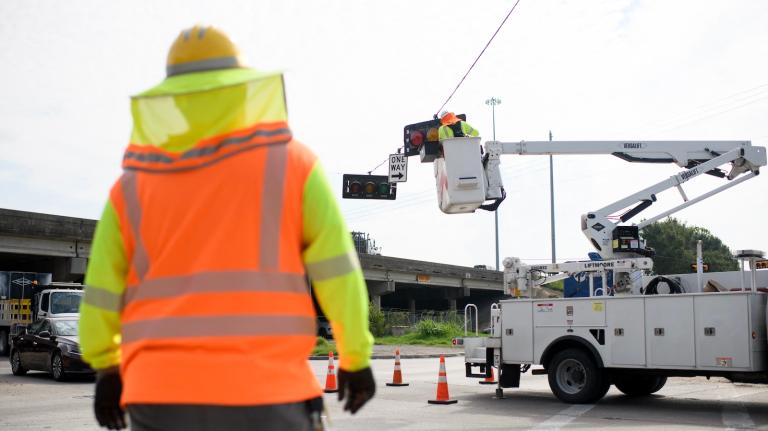A short-run weekly newsletter analyzing federal climate action during the first months of the Biden administration.
Hello, I’m Zoya Teirstein, and today is Day 24 of the Biden administration. This week, President Biden’s climate agenda hit the international stage.
Congress passed its first climate bill way back in 1987. The Global Climate Protection Act directed the president to establish a task force to create a national and international climate strategy. Who introduced it? A sprightly 45-year-old senator from Delaware named Joe Biden. However, the legislation would run into a major roadblock: Ronald Reagan, the president at the time, never established the task force.
Fast-forward three decades and President Biden now has the political heft to make climate action happen. “Climate change will be the center of our national security and foreign policy,” he said in January. Just below the headlines dominated by Donald Trump’s second impeachment trial, there are signs the current president’s vision is starting to take shape.
On Monday, Biden and Indian Prime Minister Narendra Modi had a conversation aimed at, among other things, renewing “their partnership on climate change.” On Wednesday, the president had a phone call with President Xi Jinping of China. While topics like China’s human rights abuses against ethnic minorities caused moments of tension between the two leaders, they agreed that global health security, weapons proliferation, and climate change are shared challenges facing both nations.

Meanwhile, Biden’s team has been working to carry out his executive orders aimed at international climate cooperation and national security. Special Presidential Envoy for Climate John Kerry, Treasury Secretary Janet Yellen, and Secretary of State Antony Blinken have been charged with devising a “climate finance plan” that will, in part, help developing nations cut their emissions and become more resilient to the effects of planetary warming. Biden’s energy secretary will play a role here, too, fostering international collaboration on clean energy technologies. Biden’s nomination of former Michigan Governor Jennifer Granholm to lead the Energy Department will soon advance to the full Senate for a confirmation vote.
Biden also signed another executive order last week that gives a slew of federal agencies six months to come up with a report on climate change and its impact on migration. That report will look at the national security implications of heat, drought, and other consequences of warming forcing people to flee their homes.
Climate migration — already taking place in countries like Syria and South Sudan, where extreme heat has sparked conflict, and in island nations threatened by sea-level rise — is poised to become a major challenge on the geopolitical landscape over the next three decades. The executive order directs agencies to include in their report “opportunities to work collaboratively with other countries, international organizations and bodies, non-governmental organizations, and localities” to respond to climate migration.
After four years of an administration that eschewed global cooperation on virtually all fronts, it’s clear that President Biden is looking at a whole-of-the-world approach.
But Wait … There’s More.
Big Business is getting nervous about Biden’s climate agenda. Democrats want new rules on climate risk that would require banks, energy producers, and other companies to disclose threats to their businesses posed by warming to their investors. Corporations and Republican legislators could close ranks to oppose such measures.
Will Keystone XL come back from the dead? Senator Joe Manchin of West Virginia has asked President Biden to reconsider his decision to kill the controversial Keystone XL pipeline. Manchin, the new chairman of the Senate Energy and Natural Resources Committee, said Biden’s executive order revoking a presidential permit for the project will cost the U.S. jobs.
What to expect when you’re expecting climate executive orders. White House climate adviser Gina McCarthy told E&E News that Biden will issue more presidential decrees aimed at curbing global warming. “There is more to come,” she promised.
Not to be outdone by Elon Musk, the White House announced the creation of a $100-million fund for low-carbon tech administered by the Department of Energy. It also revealed a new working group that will foster the development of emerging technologies: everything from net-zero buildings to carbon-free hydrogen to direct air-capture systems.




